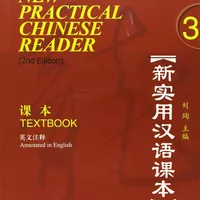Lesson 30 - Conversation 2
Lektion 30 - Konversation 2
Lesson 30 - Conversation 2
Leçon 30 - Conversation 2
Lezione 30 - Conversazione 2
Lekcja 30 - Rozmowa 2
Урок 30 - Разговор 2
Lesson 30 - Conversation 2
A: 不同 的 地方 有 不同 的 风俗习惯 , 你 觉得 我们 应该 怎样 做 ?
A: Different places have different customs, what do you think we should do?
A:場所によって習慣が異なりますが、どうすればよいと思いますか?
B: 简单 地说 , 我 觉得 入乡随俗 是 对 的 。
B: To put it simply, I think it's right to follow the customs in the countryside.
B:簡単に言えば、田舎の習慣に従うのが正しいと思います。
怎样 入乡随俗 呢 ?
How to do as the locals do?
地元の人と同じようにどうすればいいですか?
第一 , 要 尊重 别人 的 风俗习惯 , 也 就是 尊重 别人 的 文化 。
First, we must respect the customs and habits of others, that is, respect the culture of others.
第二 , 如果 你 喜欢 这种 风俗习惯 , 你 也 可以 这样 做 。
Second, if you like this custom, you can do the same.
A: 如果 我 不 愿意 这样 做 呢 ?
A: What if I don't want to do this?
A:これをしたくない場合はどうすればよいですか?
B: 你 当然 可以 不 做 , 但是 呢 也 应该 注意 , 不要 违反 别人 的 风俗习惯 。
B: Of course you don't need to do it, but you should also be careful not to violate other people's customs.
B:もちろん、そうする必要はありませんが、他の人の習慣に違反しないように注意する必要があります。
A: 你 说 的 很 对 , 最 重要 的 是 尊重 别人 。
A: You are right. The most important thing is to respect others.

